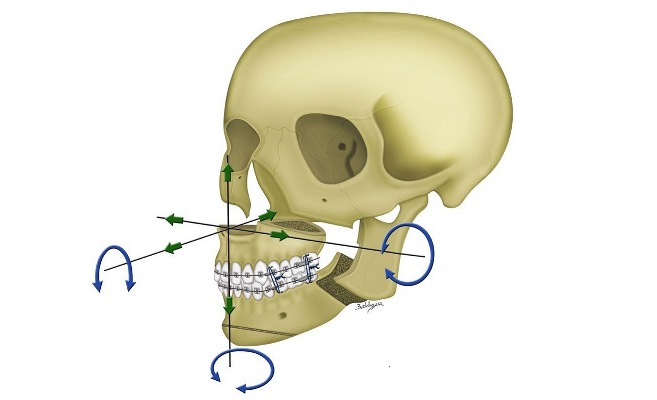According to a case report, a 30-year-old woman developed a very rare eating disorder after jaw surgery, resulting in loss of consciousness and amnesia while eating.

This case suggests that the late onset of syncope (fainting when swallowing), which is associated with cardiac arrhythmia, may be a postoperative complication of jaw surgery.
“Orthognathic surgery may have caused neurogenic syncope when swallowing,” write the authors, led by Belmiro Cavalcanti do Egito Vasconcelos, a PhD from the University of Pernambuco in Brazil.
A 30-year-old woman with a spasm in her throat
A 30-year-old female patient underwent a Le Fort type I osteotomy operation with horizontal maxillary advancement, mandibular abduction and clockwise rotation via sagittal osteotomies. In addition, she underwent surgery to reshape her chin.
The woman underwent a Le Fort-I osteotomy with horizontal advancement of the upper jaw.

Approximately seven months after the procedures, she had occlusal stability and no abnormal bone displacement, but she experienced malaise and throat spasms while eating. In addition, the woman began moderate pain in the oropharynx and hypopharynx during chewing and swallowing, as well as dizziness with loss of balance and visual impairment.
Over the next three months, her condition improved. Once, while eating, she had up to five cases of fainting with loss of consciousness and amnesia. Clinical and hematological examinations revealed nothing new, but a cardiac examination showed that the heart was beating irregularly. This suggested syncope when swallowing with asystole.
A test on a Holter monitor showed that the woman had an average heart rate of 80 beats per minute, with a minimum of 57 beats per minute. In the report, the authors wrote that the patient's symptoms were associated with a 5.4-second pause due to high-grade block (atrioventricular block).
The ECG showed that the woman's symptoms were associated with the presence of a 5.4-second pause due to atrioventricular block.

As soon as she started taking bendroflumethiazide, she improved significantly, but the symptoms did not disappear. Eventually, after taking medication for six months, she was implanted with a permanent pacemaker, which resolved all episodes of loss of consciousness and dizziness.
Extremely unusual and deadly
Neurocardiogenic syncope (NCS) is mediated by the vagal reflex and is characterized by loss of consciousness while eating solid food . It is associated with life-threatening bradyarrhythmia and low blood pressure. This usually happens after periods of fasting.
Diagnosis and treatment of syncope when swallowing is often delayed because it can be difficult to diagnose. When swallowing syncope is suspected, the authors recommend a multidisciplinary approach to treatment planning.
Past research has shown that orthognathic surgery can lead to neurofunctional damage and damage to the vagus nerve. In addition, Le Fort type I maxillary osteotomy has been associated with vagal and accessory nerve palsies, causing swallowing difficulties, coughing, and vocal cord paralysis
Despite the structural changes that occur due to orthognathic surgery , the procedure does not completely change the myofunctional pattern or significantly alter those structures associated with swallowing.
“In the case described, the late onset of clinical symptoms suggests that the surgical technique was not the underlying etiology of this pathology, but rather predisposed the patient to the disorder,” write Vasconcelos and colleagues.
